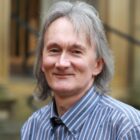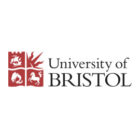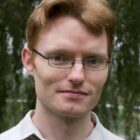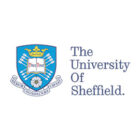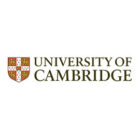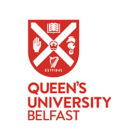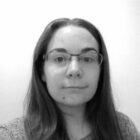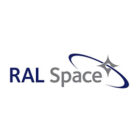Tim Spiller is Hub Director with overall responsibility for delivery of the Hub programme. He has spent 40 years researching quantum theory, superconducting systems and quantum hardware and technologies. He led Hewlett Packard’s strategy on the commercialisation of Quantum Information Processing research, is an inventor on 25 patents linked to quantum technologies and applications, and was additionally a consultant on networking, communications and nanotechnology. Within the Hub, he is providing technical oversight and judgement across the field of quantum and post-quantum secure communications.
The Hub comprises the UK’s academic leaders in quantum communications, complemented by the country’s foremost photonic networks and information security researchers, in strong partnership with several of the world’s leading industrial players.
-
John Rarity (Bristol)
Hub Principal Investigator (2019-2021), Professor of Optical Communication Systems
-
John Rarity is Hub Principal Investigator (2019-2021) with overall oversight of the Hub’s experimental programme. He is an international expert on quantum optics covering all aspects of optical quantum technologies exploiting single photons and entanglement. He was among the first to investigate the feasibility of satellite quantum key distribution schemes while at the other end of the cost scale developing low cost consumer quantum key distribution. His research is not confined to quantum communications but spans novel fibre and waveguide pair photon sources, multi-photons for cluster state computation, spin photon interfaces using dot and diamond colour centres and sub-shot noise quantum imaging. Rarity has published over 140 refereed papers with an H-index of 63. In 2015 he was elected a Fellow of the Royal Society (FRS).
-
Gerald Buller (Heriot Watt)
Principal Investigator-designate (2021-2024), Professor of Physics
-
Gerald Buller is Principal Investigator-designate (2021-2024) and has worked in single-photon physics and applications since 1990, being a very early adopter of silicon single-photon avalanche diode (SPAD) detectors. In quantum communications, in 2001 his group held the then record length of quantum key distribution of 80km (now long superceded). His group also demonstrated the first GHz clocked quantum key distribution system (2004), later featured in a number of advanced QKD systems by numerous international groups. They also demonstrated the first demonstration of quantum digital signatures (QDS) in 2012, and first kilometer range QDS system, published in 2016. Buller founded Heriot-Watt’s Institute of Photonics and Quantum Sciences in 2012, bringing together photonics specialists previously in disciplines of physics, electronic engineering and mechanical engineering. He held an EPSRC Established Career Fellowship in Quantum Technology (2015-2020), and has published over 300 publications in the field of Quantum Technology with over 11,000 citations, and an h-index of 56.
Co-investigators
-
Erika Andersson (Heriot Watt)
Professor of Physics
-
Erika Andersson brings extensive theoretical expertise in quantum information science and technology, that has led to practical demonstrations in the current Hub and internationally. She has IP filed on quantum source coding and transferrable message authentication that utilises QKD.
-
Roger Colbeck (York)
Professor of Mathematics
-
Roger Colbeck brings pioneering expertise of device-independent QRNGs and has made important contributions to the theory of quantum cryptography. He is Principal Investigator on an EPSRC First Grant and co-leads a current Hub project with NPL, ID Quantique and TREL on practical QRNGs.
-
Ross Donaldson (Heriot Watt)
Research Fellow
-
Ross Donaldson is a Royal Academy of Engineering Research Fellow, developing practical optical ground receivers for satellite-based quantum communications. He brings expertise in various novel photonic and optical technologies for free-space quantum communications.
-
Alessandro Fedrizzi (Heriot Watt)
Professor of Physics
-
Alessandro Fedrizzi brings 15 years of expertise in photonic quantum technology development. Highlights include pioneer field trials of entanglement-based QKD and long-distance free-space entanglement distribution. He holds an EPSRC Quantum Technology Fellowship.
-
Mark Fox (Sheffield)
Professor of Optical Physics
-
Mark Fox brings over 20 years of expertise in solid-state quantum optics, and is a Fellow of the Optical Society of America. His most recent achievements include very high Purcell enhancement of quantum dot emission rates.
-
Robert Hadfield (Glasgow)
Professor of Photonics
-
Robert Hadfield is an international expert in superconducting nanowire single-photon detectors (SNSPDs) and pioneered their use in QKD. Using the JWNC facilities, he is supplying bespoke high performance SNSPDs to the Hub for fibre network, free space and on-chip QKD
-
Julio Hernandez-Castro (Kent)
Professor in Cyber Security
-
Julio Hernandez-Castro brings over 15 years of expertise in design and security of cryptographic protocols and primitives, and the study of randomness generation, testing, and certification, including recent investigation of QRNGs.
-
Jon Heffernan (Sheffield)
Professor in Electrical Engineering
-
Jon Heffernan is Director of the EPSRC National Epitaxy Facility, Deputy Director of the Future Photonics Manufacturing Hub, and has 18 years of experience at Sharp as Director of Optoelectronics. His current grant portfolio comprises over £23M, including 3 IUK projects.
-
George Kanellos (Bristol)
Lecturer in Electrical & Electronic Engineering
-
George Kanellos is exploiting recent advancements in photonic integration in order to introduce radically new architectural approaches and concepts in Datacom and Computercom. He aims to tackle key physical layer technological challenges for increasing throughput, reducing latency and power consumption across all hierarchical levels of computer interconnects.
-
Adrian Kent (Cambridge)
Professor of Quantum Physics
-
Adrian Kent has pioneered the development of relativistic quantum cryptography, device-independent quantum cryptography and secure token schemes. He is co-inventor of 4 patents in quantum cryptography and computing, with 3 further patents recently filed.
-
Ayesha Khalid (Queen’s University Belfast)
Lecturer
-
Ayesha Khalid has expertise in hardware lattice-based cryptography architectures and physical attack analysis. She brings important expertise in hardware security and PQC. Khalid, O’Neill and Rafferty (the Hub Co-Investigators at QUB) are all Co-I’s of the IUK ISCF project AQuaSec.
-
Pieter Kok (Sheffield)
Professor of Theoretical Physics
-
Pieter Kok brings expertise in high-fidelity entanglement generation over all distance scales in general network topologies. The 2005 Barrett-Kok entanglement protocol underpinned the first loophole-free Bell test in 2015. He is co-creator of two YouTube QT videos (with over 50k views).
-
Reza Nejabati (Bristol)
Professor of Intelligent Networks
-
Reza Nejabati brings pioneering expertise on network virtualisation and software (IEEE Charles Kao Award 2016, h-index 32, 2 patents and 3 standardisation documents). He is Co-founder and non-exec director of start-up Zeetta Networks; and Principal/Co-Investigator for 10 EPSRC/EU grants
-
Dominic O’Brien (Oxford)
Professor of Engineering Science
-
Dominic O’Brien brings 20 years of expertise and experience in working with industry, developing free-space communications systems, including QKD systems with Nokia, Airbus, Cognizant and others. He is also a co-director of QCS, the hub focused on quantum computing.
-
Daniel Oi (Strathclyde)
Senior Lecturer of Physics
-
Daniel Oi leads the QUARC programme (funded by the UK Space Agency and phase 1.0 Hub) developing small satellite QKD. He is also collaborating with Alex Ling (CQT, Singapore) on space quantum technologies that launched the first space quantum photon-pair source in 2015.
-
Máire O’Neill (Queen’s University Belfast)
Professor of Information Security
-
Máire O’Neill is Professor, Principal Investigator of CSIT and Director of the £5M EPSRC/NCSC-funded RI in Secure Hardware and Embedded Systems (RISE). She leads the EU H2020 SAFEcrypto project on PQC and brings expertise in hardware security and applied lattice-based cryptography.
-
Douglas Paul (Glasgow)
Professor of Semiconductor Devices
-
Douglas Paul is an EPSRC QT Fellow, DSTL Visiting Fellow and was Director of the James Watt Nanofabrication Centre (2010-2015). He sits on the MOD DSEC and Government SAGE Committees. His present grant portfolio is > £24M and he won the IoP President’s Medal in 2015.
-
Richard Penty (Cambridge)
Professor of Photonics
-
Richard Penty brings expertise on integrated photonic circuits, radio over fibre, RFID and communications networks. He has extensive relevant Principal Investigator experience and led the IEEE 802.3aq channel model task. Penty and White (see below) are founders of Zinwave, PervasID and eComm.
-
Carlos Perez-Delgado (Kent)
Lecturer in Cyber Security
-
Carlos Perez-Delgado brings unique expertise at the intersection of cybersecurity and QT, with over 10 years of experience in quantum computing, metrology & imaging, and in cybersecurity applications including private quantum computation, and the verification of quantum computation.
-
Stefano Pirandola (York)
Professor of Quantum Computing
-
Stefano Pirandola has pioneering theoretical expertise in the development of “continuous-variable”-based quantum communications. He brings widespread experience in practical implementation design, with major results on security proofs and channel capacity analysis.
-
Ciara Rafferty (Queen’s University Belfast)
Lecturer
-
Ciara Rafferty brings expertise in the design of post-quantum cryptography and fully homomorphic cryptographic hardware architectures. She is a member of the ETSI TC CYBER Working Group on Quantum-Safe Cryptography.
-
Dimitra Simeonidou (Bristol)
Professor of High Performance Networks
-
Dimitra Simeonidou is Director of the Smart Internet Lab and Head of the HPN Group. She is Principal/Co-Investigator for 19 UK and EU funded research projects involving 45 Post-Doctoral Research Associates, Principal Investigator for the TOUCAN Programme Grant and Co-founder of two start-up companies Ilotron and Zeetta Networks.
-
Maurice Skolnick (Sheffield)
Professor of Condensed Matter Physics
-
Maurice Skolnick brings wide-ranging expertise in the quantum optics of nanostructures (FRS, h-index 67) and experience from 3 recent IUK projects. He has extensive leadership experience: 4 successive EPSRC Programme Grants; Research Director, EPSRC Epitaxy Facility.
-
Andy Vick (RAL Space)
Head of Disruptive Technology, RAL Space
-
Andy Vick is Head of Disruptive Technology at RAL Space and is the UK Principal Investigator for “Speqtre”, the UK-Singapore entanglement-based QKD demonstration mission due to launch in 2021/22. He brings major expertise and experience in adaptive optics and infra-red instruments.
-
Ian White (Bath and Cambridge)
Professor of Engineering
-
Ian White headed the Photonic Communication Group and brings extensive leadership experience: EPSRC PG UP-VLC and TOWS; research director of the IPES CDT; IEEE 802.3aq channel study group. Since April 2019, when he became Vice-Chancellor at Bath University, he is contributing as a visitor
-
Luke Wilson (Sheffield)
Professor of Semiconductor Physics
-
Luke Wilson brings important expertise in quantum nano-optics (h-index 24). Recent relevant highlights include demonstration of on-chip single photon beam-splitting, quantum interference and single photon non-linearities.
Researcher Co-Investigators
- Djeylan Aktas
- Siddarth Joshi
- Rupesh Kumar
- David Lowndes
- Damian Pitalua Garcia
- Adrian Wonfor
Strategic Advisory Board
- Martin Sadler OBE, Chair
- Amanda Howes, EPSRC
- Jeremy B, NCSC
- Lucy Edge, Satellite Applications Catapult
- Tim Edwards, ADVA Optical Networking Ltd
- Norbert Lütkenhaus, University of Waterloo, Canada
- Mike Rudd, UK Space Agency
- Hakim Mkinsi, ETSI
- Bill Munro, NTT Basic Research Laboratories, Japan
- Alwyn Seeds, UCL and NDFF
- Paul Townsend, Tyndall National Institute, Ireland
- Tim Whitley, BT

